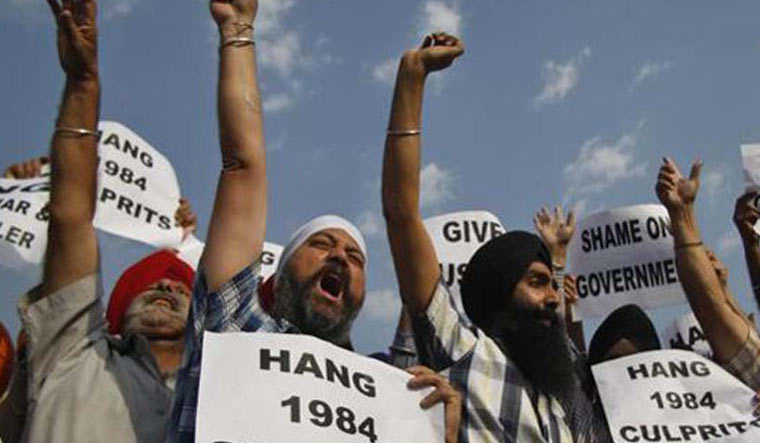Nearly a week after Prime Minister Narendra Modi referred to Rajiv Gandhi as being corrupt, the BJP is continuing to target the legacy of the former prime minister.
On Thursday morning, the official Twitter handle of the BJP brought up the anti-Sikh riots of 1984, which erupted when Rajiv took over as prime minister following the assassination of Indira Gandhi. The BJP described the anti-Sikh riots as the “biggest genocide of India”. The BJP claimed the Nanavati Commission, which probed the anti-Sikh riots, had found instructions to kill “came directly from the then PM Rajiv Gandhi’s office”.
The BJP tweeted, “It’s on record of Nanavati Commission that probed the 1984 anti-Sikh riots, the biggest genocide of India in which the government killed its own citizens, that instructions to kill came directly from the then PM Rajiv Gandhi’s office. The country awaits justice for this karma.”
The reference to 'karma' appears to be a retort to Congress chief Rahul Gandhi, who had tweeted to Modi that “your karma awaits you” in response to the prime minister's charge against Rajiv.
Despite criticism of his comments against Rajiv at a rally in eastern Uttar Pradesh on May 4, Modi, and the BJP, have continued attacking him. On May 6, Modi challenged the Congress to “fight elections in the name of the former PM associated” with Bofors, the anti-Sikh riots and Bhopal Gas Tragedy. On May 8, Modi alleged Rajiv had misused an Indian Navy ship for a family vacation.
also read
- 1984 anti-Sikh riots case conviction: Will Sajjan Kumar get death penalty?
- Priyanka said ‘I'm feeling bad for her’ after meeting Rajiv Gandhi’s assassin Nalini: Rahul Gandhi
- 1984 anti-Sikh riots case: Delhi court gives nod to framing charges against Jagdish Tytler
- OPINION: Rajiv Gandhi secured stability in South Asia, Modi should revive Saarc
The BJP's tweet also had a video clip from a news panel discussion on India Ahead news channel, featuring lawyer H.S. Phoolka. Phoolka has worked extensively for justice for the victims of the anti-Sikh riots. In his comments, Phoolka claimed instructions for the killings came from Rajiv Gandhi's office and added other officials at the time, such as president Zail Singh and home minister P.V. Narasimha Rao, were powerless to act.
Phoolka had been part of the Aam Aadmi Party and had been a MLA for the party in Punjab. He resigned from AAP in January; there was speculation in the media that he left the party as he opposed any alliance with the Congress. Phoolka was also perceived as being close to the BJP, but had denied reports he was joining the saffron party.


